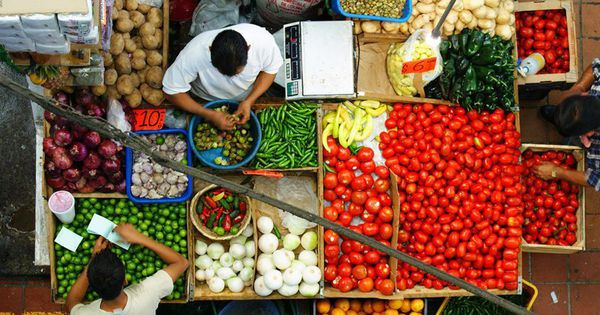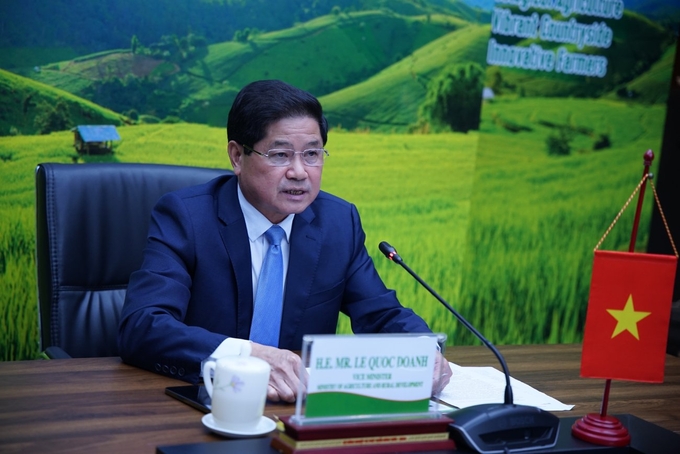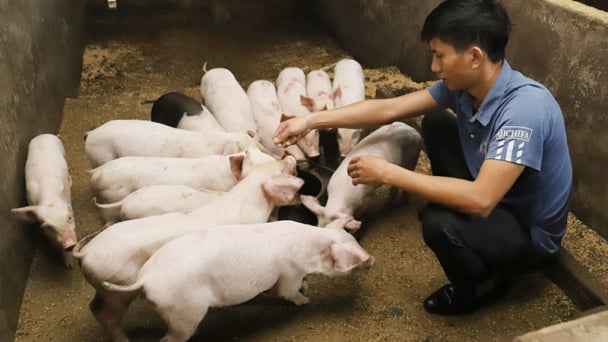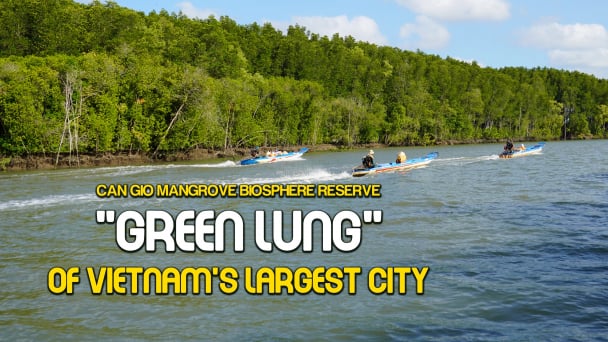June 20, 2025 | 06:12 GMT +7
June 20, 2025 | 06:12 GMT +7
Hotline: 0913.378.918
June 20, 2025 | 06:12 GMT +7
Hotline: 0913.378.918
On October 5, the Asia-Pacific Symposium on Agrifood Systems Transformation convened by the Food and Agriculture Organization of the United Nations (FAO), brought together government ministers from across the region, private sector, academia, and other stakeholders to map out a massive acceleration to transform the agrifood systems, or risk worsening malnutrition and further environmental degradation in the world’s hungriest and most populous region.
As noted at the symposium, the region’s complex agrifood systems are under enormous strain as a result of rising food prices, floods, drought, water scarcity, increasing climate-related disasters, the global pandemic, and conflicts. These challenges directly impact the most vulnerable people of this region, including smallholder farmers and others who depend on the land for their livelihoods as well as the urban poor.

Illustrative photo.
Speaking at the beginning of a three-day Asia-Pacific symposium, which aims to fast-track agrifood systems transformation in this vast region, FAO’s Director-General, QU Dongyu, said the region’s transformation needs to focus on outcomes that result in better production, better nutrition, better environment, and a better life for all – ensuring no one is left behind.
According to one recent UN report, Asia- Pacific is so off course, it would need until 2065 to achieve all 17 Sustainable Development Goals – a delay of 35 years.
The reason for some of the more recent setbacks is clear. Droughts and floods, the highest food prices in decades, armed conflicts, and the fallout and aftermath of the COVID-19 pandemic have disrupted supply chains, lives, and livelihoods. Together, these have resulted in the present crisis of five ‘Fs’ – lack of food, feed, fuel, fertilizer, and finance, and a prediction that there could be reductions in cereal output next year due to fertilizer shortages in some countries in the region.
More than 80 percent of the world’s smallholders and family farmers live off the land in this Asia-Pacific region, and their interests and livelihoods must be safeguarded, the Symposium was told. Social safety nets and reskilling programs to improve employment prospects should form an important part of this transformation.
“It’s time that all stakeholders in this region made bold moves toward this transformation of our food and agriculture systems,” said Jong-Jin Kim, Assistant Director-General and FAO Regional Representative for Asia and the Pacific. “Governments must act through leadership. Asia-Pacific’s private sector must broaden its customer base to provide affordable solutions to the region’s smallholders. Civil society must work more proactively with policymakers and the private sector. Academia must accelerate its research, while resource partners must make this transformation their top priority. FAO is here to help our Members and all partners achieve this, " Kim added.

Deputy Minister Le Quoc Doanh spoke at the Asia-Pacific Symposium on Agrifood Systems Transformation convened by the Food and Agriculture Organization of the United Nations (FAO) on October 5. Photo: Linh Linh.
As Vietnam adds its voice to Asia-Pacific countries in major gatherings to rapidly transform the region’s agriculture and food systems, damaged by COVID, climate change and price spikes, Deputy Minister of Agriculture and Rural Development Le Quoc Doanh laid out four proposals including:
First, maintaining the stable and smooth operation of agricultural supply chains globally. Countries need to minimize unnecessary barriers to food production and export, enhance value-chain connectivity, reduce food loss and waste, promote e-commerce and reform the system of traceability, logistics, transport, and quality control. Viet Nam wishes to collaborate with all stakeholders to promote agricultural trade as the fundamental basis for regional and global food security.
Second, the green and digital transformation of agriculture along with the “more from less” approach is an urgent need. Therefore, financial, technological and capacity-building assistance for developing countries is critical for the transition to more multiple values, more sustainable and climate-resilient agrifood systems. Viet Nam stands ready to become a food innovation center in South East Asia and will continue to actively join initiatives on innovation, inclusive, digital and green transformation in the agricultural sector.
Third, private sectors should be encouraged to make responsible investments, and innovatively and effectively utilize technological advances. We should also better develop and upscale public-private partnership (PPP) models.
Fourth, it is essential to expand international cooperation in agricultural research and development, strengthening early warning systems for natural disasters and diseases. It is also necessary to further strengthen platforms for partnership and cooperation in information sharing in sustainable management of natural resources, including transboundary water resources, and marine resources, and strengthening the South-South cooperation.
"We really need “joint actions” to deal with consequences of the Covid-19 pandemic, the 5F crisis in the new normal context. Vietnam is committed to working closely with partners around the world in the fight against the pandemic, the 5F crisis and on the path toward sustainable and inclusive recovery, including green and sustainable agrifood systems", Mr. Doanh affirmed.
Translated by Linh Linh

(VAN) Biodiversity is being threatened by traditional remedies made from wildlife. Traditional medicine and humans must change to live in harmony with nature.

(VAN) Agrifood investment and finance solutions for people and the planet.

(VAN) Microplastic contamination has become pervasive in seafood, posing unprecedented challenges for food safety and marine ecosystems.

(VAN) Proactively using vaccines, combined with transport control and enhanced surveillance, is the only viable path toward biosecure and sustainable livestock production in Vietnam.

(VAN) Located in the southeast of Ho Chi Minh City, the Can Gio Mangrove Biosphere Reserve is considered the ‘green lung,’ a solid shield protecting the city.

(VAN) To address plastic pollution, closing the plastic recycling cycle will bring significant economic and environmental benefits.

(VAN) According to the Binh Thuan Department of Industry and Trade, in the first five months of 2025, Binh Thuan's dragon fruit export turnover increased by 20.65% compared to the same period last year.